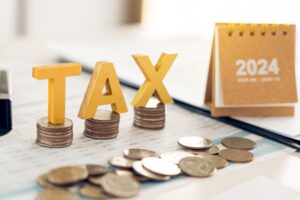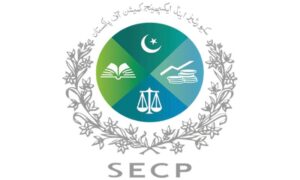SECTION 51 FOREIGN SOURCE INCOME OF RETURNING EXPATRIATES
The Income Tax Ordinance in Pakistan provides certain exemptions to returning expatriates for foreign source income earned by them during their stay outside of Pakistan. This is provided under Section 51 of the Ordinance, which allows a certain period of exemption for foreign source income earned by returning expatriates. This blog will discuss the provisions of Section 51 and the conditions that must be met for a returning expatriate to avail of the exemption for foreign source income.
Background
Pakistan has a significant expatriate population, with many Pakistanis working abroad in various countries around the world. These expatriates earn income from their work abroad, which is generally subject to tax in the country where it is earned. However, when these expatriates return to Pakistan, they may also be subject to tax on their foreign source income in Pakistan, depending on the circumstances.
To address this issue, the Income Tax Ordinance in Pakistan provides an exemption for returning expatriates for a certain period of time for their foreign source income earned during their stay outside of Pakistan. This is provided under Section 51 of the Ordinance, which outlines the conditions that must be met for a returning expatriate to avail of the exemption.
Exemption Period
Under Section 51, the exemption period for foreign source income earned by a returning expatriate is generally two years following the year in which the individual returns to Pakistan. For example, if a returning expatriate returns to Pakistan in 2021, their foreign source income earned in 2021 and 2022 would be exempt from tax in Pakistan.
However, the Federal Board of Revenue (FBR) may extend the exemption period in certain circumstances. The FBR has the power to extend the exemption period for a further one or two years, depending on the circumstances. The FBR may consider factors such as the individual’s employment situation, the economic conditions in Pakistan, and other relevant factors when deciding whether to extend the exemption period.
Conditions for Availing the Exemption
To avail of the exemption for foreign source income under Section 51, a returning expatriate must meet certain conditions. These conditions are outlined below:
Must be a Resident of Pakistan
The individual must be a resident of Pakistan for tax purposes upon their return to Pakistan. A resident of Pakistan is defined as an individual who is present in Pakistan for a certain period of time during the tax year. The specific criteria for determining residency are outlined in Section 9 of the Income Tax Ordinance.
Must Not Have Been a Resident of Pakistan for Previous Tax Years
The individual must not have been a resident of Pakistan for tax purposes in the tax years immediately preceding their return to Pakistan. This means that the individual must have been living and working abroad for a certain period of time before returning to Pakistan. The specific period of time required to meet this condition may vary depending on the circumstances.
Must Have Been an Expatriate
The individual must have been an expatriate during the tax years in which the foreign source income was earned. An expatriate is defined as an individual who is not a resident of Pakistan for tax purposes during the tax year in which the income was earned.
Must Provide Evidence of Foreign Source Income
The individual must provide evidence of the foreign source income earned during their stay outside of Pakistan. This may include documents such as employment contracts, pay slips, bank statements, or other relevant documents.
It’s important to note that if the individual fails to meet any of the above conditions, they may not be eligible for the exemption for foreign source income under Section 51. Therefore, it is crucial for returning expatriates to carefully review the conditions and ensure that they meet all the requirements before claiming the exemption.
Tax Treatment of Foreign Source Income
Under the Income Tax Ordinance, foreign source income earned by a resident of Pakistan is generally subject to tax in Pakistan. However, returning expatriates who meet the conditions outlined in Section 51 are exempt from tax on their foreign source income earned during the exemption period.
It is important to note that this exemption only applies to foreign source income earned during the exemption period. Any foreign source income earned outside of the exemption period will be subject to tax in Pakistan.
EXEMPTION UNDER SECTION 51
In addition, the exemption under Section 51 only applies to foreign source income and does not apply to income earned in Pakistan. Therefore, returning expatriates must still pay tax on any income earned in Pakistan during the exemption period.
Section 51 of the Income Tax Ordinance in Pakistan provides an exemption for returning expatriates for foreign source income earned during their stay outside of Pakistan. The exemption period is generally two years following the year in which the individual returns to Pakistan but may be extended in certain circumstances by the FBR.
To avail of the exemption, returning expatriates must meet certain conditions, including being a resident of Pakistan, not being a resident of Pakistan for previous tax years, being an expatriate during the tax years in which the foreign source income was earned, and providing evidence of the foreign source income.
It is important for returning expatriates to carefully review the conditions outlined in Section 51 and ensure that they meet all the requirements before claiming the exemption. Failure to meet any of the conditions may result in the individual being ineligible for the exemption and being subject to tax on their foreign source income in Pakistan.
Section 51 provides a helpful exemption for returning expatriates, allowing them to avoid being taxed twice on their foreign source income earned during their stay outside of Pakistan. By meeting the conditions outlined in Section 51, returning expatriates can take advantage of this exemption and minimize their tax liabilities in Pakistan.
It is important to note that the tax treatment of foreign source income can be complex and varies depending on the individual’s circumstances. Therefore, it is recommended that returning expatriates seek the advice of a tax professional to ensure that they are fully compliant with the Income Tax Ordinance and any other applicable tax laws.
In addition to the exemption for foreign source income, returning expatriates may also be eligible for other tax incentives and benefits, such as reduced tax rates for certain types of income or tax credits for certain expenses. These incentives and benefits are designed to encourage expatriates to return to Pakistan and contribute to the country’s economic development.
Overall, Section 51 of the Income Tax Ordinance in Pakistan provides an important exemption for returning expatriates, allowing them to avoid being taxed twice on their foreign source income earned during their stay outside of Pakistan. By meeting the conditions outlined in the section, returning expatriates can take advantage of this exemption and minimize their tax liabilities in Pakistan.
However, it is important for individuals to ensure that they meet all the requirements and comply with all the relevant laws and regulations to avoid any potential penalties or consequences for noncompliance. Seeking the advice of a tax professional can help ensure that individuals are fully compliant and taking advantage of all available tax incentives and benefits.
In conclusion, Section 51 of the Income Tax Ordinance in Pakistan provides an important tax exemption for returning expatriates, helping to encourage them to return to Pakistan and contribute to the country’s economy. By meeting the conditions outlined in the section, returning expatriates can take advantage of this exemption and minimize their tax liabilities in Pakistan. However, it is important for individuals to seek the advice of a tax professional and ensure that they comply with all relevant laws and regulations to avoid any potential penalties or consequences for noncompliance.




